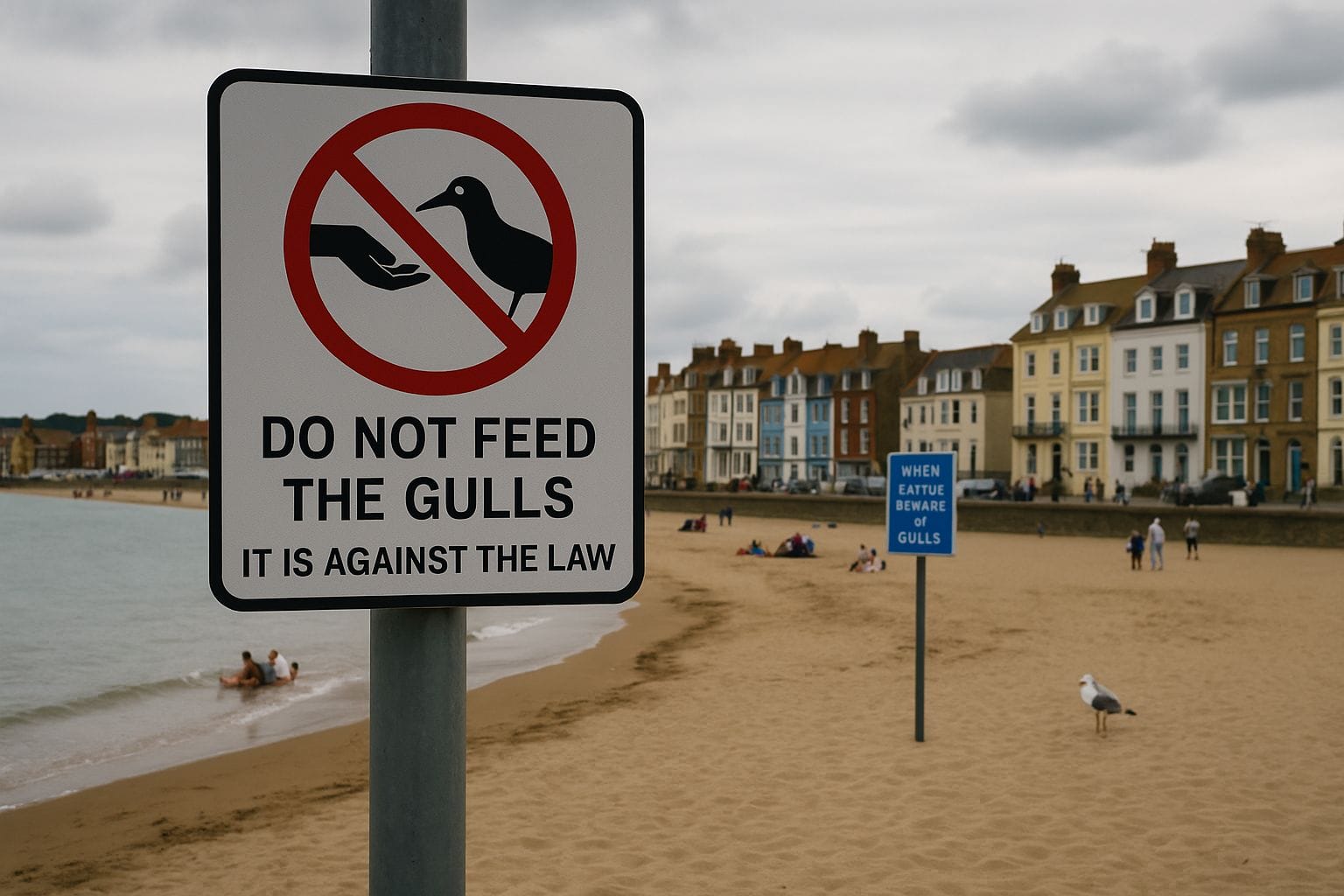UK Seaside Towns Crack Down on Gull Feeding as Overtourism Strains Communities
As summer tourism surges across the United Kingdom’s picturesque coastline, visitors are being urged to stay informed about a growing list of local regulations—particularly new laws targeting the feeding of seagulls. Authorities across coastal destinations such as Blackpool, Aldeburgh, Scarborough, and St Ives have enacted strict bans on feeding gulls in public spaces, with fines reaching as high as £2,500 under Public Space Protection Orders (PSPOs).
The regulations aim to mitigate the adverse impacts of overtourism, which has strained local infrastructure, disrupted daily life for residents, and emboldened aggressive seagull behavior. What was once seen as charming seaside wildlife is now a symbol of tourism-related chaos.
In one widely reported incident, a 97-year-old woman near Blackpool was threatened with a £2,500 fine after a neighbor reported her for feeding gulls—an event that sparked national conversation and underscored the seriousness of local enforcement. Across Suffolk’s Aldeburgh, signage now warns visitors that feeding gulls could result in legal prosecution. These moves reflect a broader policy shift prioritizing environmental balance and community well-being over unchecked tourism.
Why Gulls Are Now a Legal Matter
Seagulls, once a quirky fixture of UK seaside towns, have become a nuisance—damaging property, stealing food, and spreading waste. As more tourists flock to the coast, many unknowingly contribute to the problem by feeding the birds, encouraging aggressive behavior and dependency.
In response, councils have empowered enforcement officers to issue PSPOs targeting bird feeding, anti-social behavior, and other public nuisances. Fines start at £80 in towns like East Devon and can escalate dramatically for repeat offenses or unpaid citations. In St Ives, Cornwall, a rule banning gull feeding has been in place since 2018, credited with significantly reducing injury and property damage caused by bird attacks.
Local authorities stress that these actions are not intended to dampen tourism but rather to maintain a balance that protects visitors and preserves local quality of life. “This isn’t about penalizing tourists—it’s about creating safer, cleaner spaces for everyone,” said a spokesperson from the Cornwall Council.
Overtourism: A Growing UK Challenge
The UK is not alone in facing overtourism issues, but its smaller coastal towns are particularly vulnerable. Popular destinations like Scarborough and Whitby are experiencing a sharp increase in seasonal traffic, placing strain on public services, housing availability, and environmental resources. Seagulls are just one visible symptom of larger challenges.
In Brighton, another popular seaside city, efforts are underway to promote sustainable tourism through improved public transport, eco-lodging, and bicycle rental programs. Local governments are urging tourists to visit outside of peak seasons and explore lesser-known destinations, such as Somerset, East Devon, or inland villages, to reduce congestion and spread economic benefit more evenly.
Global Inspiration: Learning from Barcelona
The UK’s evolving approach to overtourism mirrors efforts in global hotspots like Barcelona. Recently, the Spanish city made headlines with local protests where residents used water guns to deter tourists—a dramatic but telling sign of frustration. With slogans like “One more tourist, one less resident,” the movement demanded stricter controls on mass tourism’s impact on housing, community life, and sustainability.
Though the UK has not seen protests of similar magnitude, citizen concerns are escalating. Local councils are responding not only with behavior regulations like bird-feeding bans but also with policy changes that include potential tourist taxes, increased public service funding, and zoning rules to curb short-term rentals.
A Shift Toward Private, Sustainable Stays
The rise of travel platforms like Airbnb and Vrbo has offered visitors an alternative to crowded hotels. Demand for private group stays, countryside retreats, and coastal cottages has soared—especially in under-visited regions like South Devon and Northumberland.
Luxury Group Stay, a hospitality company specializing in curated group accommodations, reports that travelers increasingly prefer self-contained options that allow them to dine outdoors, avoid fines, and enjoy nature without encountering tourism chaos.
This shift aligns with a broader movement toward responsible tourism. More travelers are now conscious of their environmental impact and actively seek accommodations and experiences that emphasize sustainability and community support.
Policy Shifts for a Sustainable Future
In a bid to future-proof tourism, several councils are exploring tourist levies—small taxes added to hotel bills or accommodation bookings. These funds help maintain public restrooms, clean beaches, support waste management, and protect heritage sites. Brighton and Edinburgh are among the UK cities actively evaluating the policy, with pilot programs expected in 2025.
Meanwhile, national tourism bodies such as VisitBritain are promoting responsible tourism campaigns, educating travelers on respecting local laws, reducing plastic use, and embracing off-season travel.
The Department for Environment, Food & Rural Affairs (DEFRA) has also issued guidelines urging coastal councils to harmonize environmental regulations and educate tourists about safe behavior near wildlife—such as not feeding birds and properly disposing of litter.
Conclusion: Know Before You Go
As seaside tourism rebounds post-pandemic, travelers should be mindful of evolving regulations across the UK’s coastal destinations. Feeding seagulls, once considered a lighthearted beach activity, is now a serious offense in many areas. But the fines and rules reflect a deeper challenge: how to balance the economic benefits of tourism with the long-term health of communities and ecosystems.
Visitors are encouraged to research local guidelines before traveling, consider quieter destinations, and support businesses that promote environmental sustainability. The new era of travel demands not just enjoyment—but awareness, responsibility, and respect for the places we love to explore.















